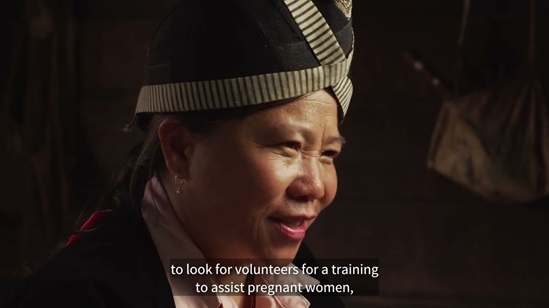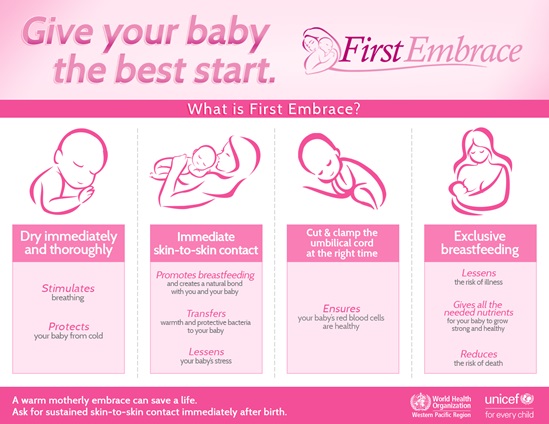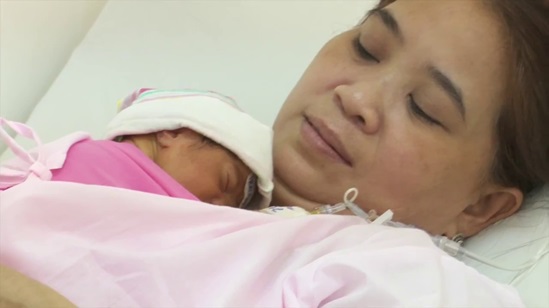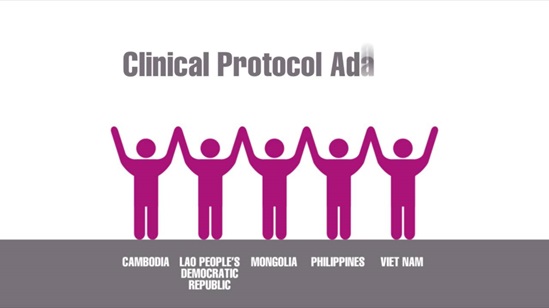Maternal health
The World Health Organization (WHO) envisions a world where every pregnant woman receives safe and high-quality care throughout the pregnancy, childbirth, and postnatal period. In collaboration with Member States, WHO promotes universal access to high-quality maternal health-care services, in alignment with the Global Strategy for Women's, Children's and Adolescents' Health and Every Woman and Every Newborn initiative.
Severe bleeding, high blood pressure, pregnancy-related infections, complications from unsafe abortion, and underlying conditions exacerbated by pregnancy are common causes of maternal deaths. Notably, most of these causes are preventable and manageable with access to high-quality and people-centred health care.
WHO emphasizes the following strategies to enhance maternal health outcomes:
- Evidence-based policies: Developing and implementing effective and data-driven policies and strategies;
- Access to services: Expanding access to affordable, equitable and high-quality family planning, reproductive, and maternal health services;
- Effective interventions: Applying evidence-informed and practical health interventions throughout pregnancy, childbirth, and the postnatal period;
- Women’s health and nutrition: Improving the health and nutritional status of women of all ages, especially pregnant and nursing women;
- Community engagement: Engaging and empowering women, families and communities to support maternal health;
- Social determinants of health: Improving conditions in which girls are born and grow, women live, work and age, beyond the health sector
- Partnerships and investments: Strengthening partnerships to promote women’s health and well-being and increase investment in maternal and newborn health;
- Monitor progress and drive continuous improvement: Strengthen tracking system to monitor progress towards national, regional and global maternal targets while identifying gaps and areas for ongoing enhancement.
Sustainable Development Goal (SDG) target 3.1 aims to reduce maternal mortality to less than 70 maternal deaths per 100 000 live births by 2030.
In 2020, globally, 800 women died every day from preventable causes related to pregnancy and childbirth which translates to approximately one death every two minutes. Despite a 42% reduction in the maternal mortality ratio (MMR) over the last two decades in the Western Pacific Region, an estimated 8300 women died from maternal causes in 2020. Notably, significant inequalities persist across countries in the Region, with the lowest MMR at 3 per 100 000 live births compared to the highest MMR at 192 per 100 000 live births.
Trends in MMR in the Region showed a notable decline, decreasing by 35.5% from 76 per 100 000 live births in 2000 to 49 in 2010. However, progress slowed significantly in the following decade with only a 10.2% reduction between 2010 and 2020, reaching 44 per 100 000 live births.
Despite 98% of all births in the Region being attended by skilled birth personnel in 2023, further efforts are needed. With increasing numbers of women accessing antenatal and perinatal care in health facilities in the Region, it is essential to prioritize enhancing the quality of care to accelerate progress and end preventable maternal deaths across the Region.
Improving maternal health is a strategic priority of WHO, firmly grounded in a human rights-based approach and closely linked to advancing universal health coverage.
WHO in the Western Pacific works in collaboration with Member States to strengthen health systems and institutional capacities by developing and supporting implementation of evidence-based national policies, strategies, guidelines, and clinical protocols. This includes operationalizing robust data systems for effective monitoring, enhancing health system capacity, and empowering women to actively engage in their health-care decisions.
WHO works to strengthen access to high-quality, respectful services across the continuum of pregnancy, childbirth and postnatal care through establishing routine continuous quality improvement mechanisms at all levels. Stakeholders jointly review the current intrapartum and early postpartum care practices, identify the quality gaps, develop an action plan along with setting targets, and implement routine measures for monitoring and undertaking improvement actions.
To reinforce these efforts, WHO supports country-tailored support focused on providing high-quality basic antenatal, childbirth and early postnatal care to prevent and manage leading causes of maternal mortality properly and timely. WHO also promotes the integration of competency-based training packages into pre-service and in-service curricula, ensuring that future generations of health-care providers are equipped with the essential skills to deliver safe, dignified and respectful, high-quality maternal care.

/59748.tmb-300v.png?sfvrsn=9885965b_2)












